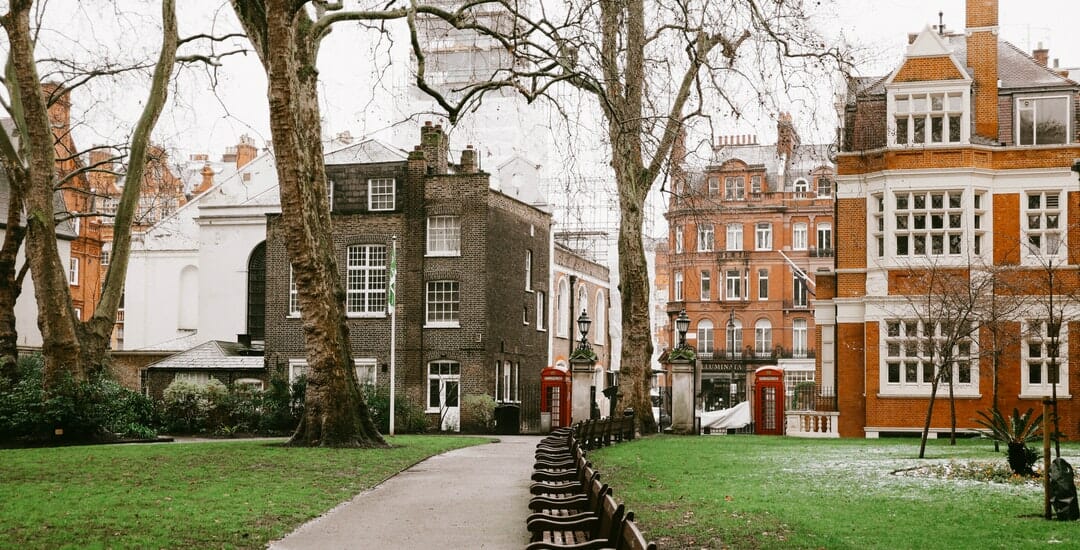The real estate market in London is seeing a revival from the dip during the covid pandemic in 2020. More and more people are taking advantage of low interest rates to purchase their first home. Others are using the time to move to a quieter burrow or buy a bigger property.
As UK house prices continue to perform strongly in May 2021, London remains the region with the slowest growth. Prices are up 5.2% in the last year, reflecting the affordability challenge with the average property in the capital costing nearly twice as much as the UK average.
Stamp duty is another factor pushing prices up. The market continues to be supported by a shift in preferences towards more spacious properties. While the price of an average detached house increased 11.3% over the last year, flats only increased by 6.5%.
The market has also been supported by household savings during the pandemic, estimated to be around £7,800 per adult, and continued low interest rates.
We expect that these forces will support price growth over the coming months, though at a lower rate than we have seen in the first half of 2021. Our latest modelling suggests prices could increase by 5-7% on average this year, which is significantly above recent years, and could rise by up to 4% next year.
As more people look at buying property, we look at why now could be the perfect time to buy property in London.
Is it a good time to buy property?
Right now, it’s a buyer’s market. If you can afford it and are not afraid of a little risk, this could be the perfect time to buy property in London. Of course, this doesn’t mean that you should approach this light-heartedly.
According to property experts, investments are a slight gamble post-lockdown. It’s important to leverage the information you have and use it to your benefit.
Buying smart means taking advantage of the low interest rates and investing in a property in London with high potential.
If you have access to capital, now is a good time to buy property in London. You can’t expect an immediate 15% reduction in guide prices upon market return, but if you put a bid on the table, 20% below the asking price, sellers in need of liquidity will find it very difficult to say no.
The first step is to take a 10-year view as the recovery from the lockdowns will be a long time coming. Still, there is no better track record than that of London’s property market.
Prospective homebuyers may use the current moment to prepare and ensure they have everything in order to press ahead with a purchase once the lockdown is relaxed.
If you are planning on taking out a mortgage, use the time you have to assess your mortgage options.

Some lenders are not taking on new applications, while others are retracting on mortgages that had already been agreed in principle.
For this reason, consolidating your finances and finding the best mortgage products available is of the utmost importance. This will put you in a stronger position once something resembling normality returns.
As you are doing your mortgage prep, prepare yourself for difficulties obtaining the actual mortgage right now.
The latest news suggests that buyers will find it difficult, but not impossible, to get a mortgage. This will likely depend on how far along they are in the process and the size of their mortgage loan.
Some customers whose loan-to-value (LTV) is over 60% will require a physical valuation, depending on the lender.
Since some lenders are able to conduct valuations via Automated Valuation Models “AVM”, allowing for lender rates to be reserved.
With price growth slowing in former hotspots, transaction levels stuttering and an uncertain period for Britain’s economy in prospect, the housing market is experiencing turmoil.
The uncertain market offers precisely the conditions in which canny purchasers can find opportunities to strike a property bargain in London.

The capital of the UK is still seeing the ripple effects of formerly stratospheric growth — a trend that stalled roughly three years ago.
The decidedly mixed picture it set out is reflected by lacklustre levels of activity in the housing market.
The number of housing transactions has been stuck at the same level for four years — around 1.2m per year — but in London, where the market slowdown has been particularly marked in central or “prime” areas, the turnover is down by 20 per cent over four years.
This has seen sellers coming to terms with the fact that there are fewer buyers on the ground and today’s house hunters are making higher demands from vendors.
As a result, sellers are also willing to acknowledge that a material change in sentiment has taken place. This has created space for more price negotiations between buyers and sellers.
As interest rates remain low, there is a tremendous amount of capital looking to purchase property in London.
The value of income has gone way up because rates have come way down. In other words, it takes a lot more capital to generate the same amount of risk-adjusted income. Yet, rental property prices haven’t properly reflected this increase in value.
With hundreds of thousands of homeowners refinancing in 2020, hundreds of thousands of people will have greater cash flow in 2021 and beyond. That’s great for the economy.
Also, the value of a property is ultimately based on its rental income. London has higher cap rates due to faster property price appreciation. This means the city offers tremendous value to income-seeking investors.

Because affordability is up, real estate prices are likely to catch up with other asset classes. Now is a good time to buy real estate in London.
If you are considering buying a property in London with the intent to let it out, there is some good news.
The UK has become an increasingly popular place to holiday with the effects of Brexit and the easing of lockdown restrictions making it more appealing to holiday in this country. A Visit Britain study shows that during 2019 the spend on UK staycations was over £24.7 billion – an increase of almost 3% on 2018.
If the recent year-on-year increase in UK staycations wasn’t encouraging enough, 2021 is set to look even brighter for UK holiday let owners.
The fact that some foreign countries have closed their borders to British citizens in the aftermath of the COVID-19 pandemic means the future is somewhat uncertain for holidaymakers in terms of ever-changing restrictions and travel corridors.
This suggests that they will likely be less confident to holiday abroad, meaning that there has never been a better time to invest in a holiday let in London.
Buying a property in London is about finding the people who are serious about selling and who are happy to take that haircut on price to get on with their life. Due to recent lockdowns this is starting to happen more frequently.
If you need help finding the best property in London to buy, you can seek the help of a property or financial advisor. Working with one will help you navigate the current market and find a property that fulfils your criteria, budget and risk profile.


